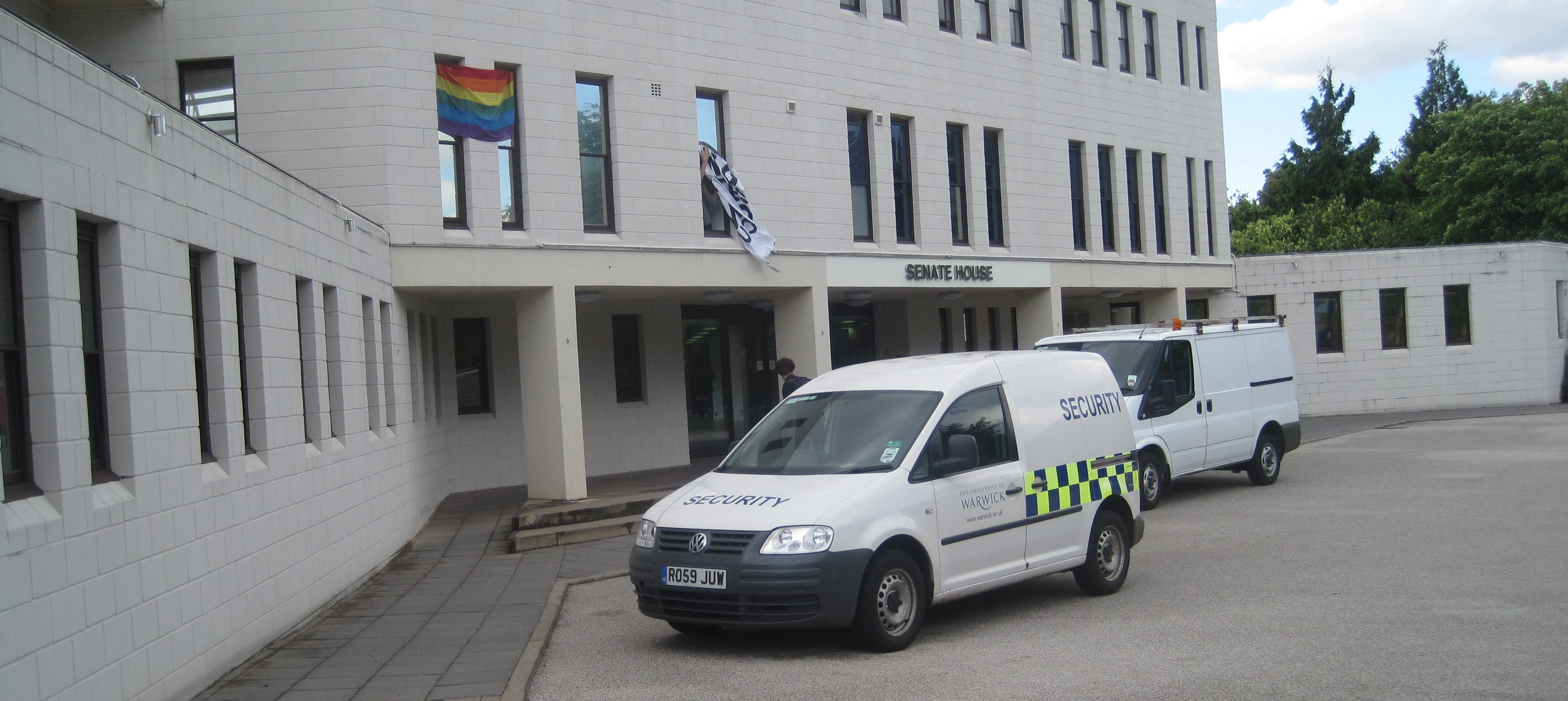Solidarity and Social media
Yesterday, over twenty students occupied the council chamber of Senate House. The group, calling themselves ‘Protect the Public University – Warwick’, entered the council chamber at 4.35pm yesterday and are holding a meeting of indefinite length while, at the same time, seeking “public affirmation from the university” of their objectives.
The first statement released by the group on their WordPress page states their desire to begin a dialogue on “the continuing marketization and privatization of higher education” and voicing their opposition to the “widening inequality within higher education”.
In an interview with the Boar, a spokesperson for the group confirmed these primary objectives and also discussed the group’s decision to publish several tangible objectives that were decided in their inaugural meeting. Some of the group’s more concrete aims include university affiliation with groups such as the Council for the Defence of British Universities and Vice-Chancellor Nigel Thrift’s relinquishment of his £42,000 pay rise. PPU Warwick suggests that the money is spent on creating a new bursary for prospective students from the surrounding area, thereby widening access to higher-education in the local community.
PPU Warwick has received an admirable amount of support on social media outlets such as Facebook, Twitter and WordPress and the campaign is still garnering attention –Students of the Broad Left and NCAFC (National Campaign Against Fees and Cuts) have expressed their solidarity over twitter and the well-respected Guardian Higher Education Network has retweeted the group’s first statement from the council chamber in order to raise awareness of the cause. This statement was viewed more than 10,000 times on WordPress in the first twenty-four hours alone.
In an interview, a spokesperson for the group described the utilisation of social media outlets as “vital to any form of political action today”, because they enable the group to voice their opinions and objections clearly and encourage the public to formalise their support – by sharing, retweeting, or changing their cover photo.
The afore-mentioned aims of PPU Warwick seemingly run in parallel to those of social media networks: the erosion of distance in order to form cohesive relationships and the creation of a space for dialogue. We will await the results of the occupation of Senate House with baited breath. The increased utilisation of social media networks has certainly enabled student movements such as PPU Warwick and similar groups such as Occupy Sussex to gain attention much more quickly than would have previously been possible. Whether or not this translates into the group’s aims being realised remains to be seen.
The group’s full statement can be read here.

Comments